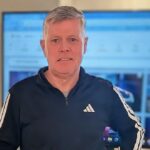In 2012, Chris Cowper-Smith, Bob Garrish and Shea Kewin were all students in a Dalhousie entrepreneurship class when they came up with a business idea rooted in kinesiology. They created a prototype of a unique knee brace for people with knee injuries to help them move better. Unlike the traditional knee braces on the market, they wanted to design a light-weight knee brace that would have a suspension system to enhance stability and support. To bring their product to market they would need to start testing their designs and gather funding to support their research.
In 2013 they gained some momentum when their company, Spring Loaded Technology was named as a finalist in the BioInnovation Challenge, a pitch competition with the possibility to win a prize package that would include $15,000 in seed funding and an advisory services package worth more than $20,000 including services provided by Cox & Palmer, Solutions Inc., Marsh Canada Limited and PricewaterhouseCoopers.
They entered their trademarked knee brace Levitation, designed with a unique mechanical hinge that stores energy when flexed and releases during extension. With such an impressive pitch and a product filled with potential they were deemed the most attractive for investment by a panel of judges dubbed The Commercialization Council and the conference audience.
Since winning the competition many other doors to investment have opened for the fledgling company. So far the company has been able to raise $3 million and has gone on to win various investment competitions including the Business Development Bank of Canada (BDC) Young Entrepreneur Award for their production of the world’s first bionic knee brace, which landed $100,000 for the Halifax company. Today the Dartmouth-based company is close to bringing their bionic knee braces to the masses and is still actively pursuing investment.




